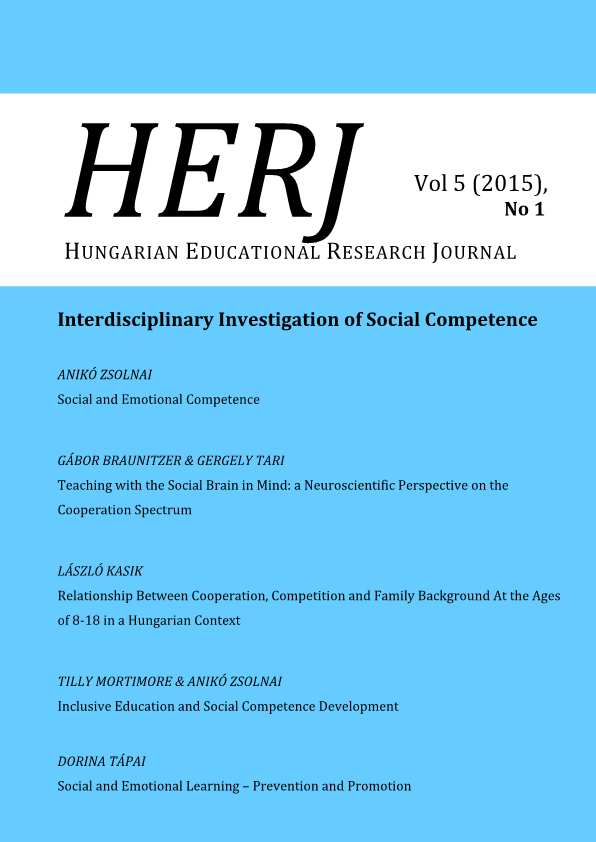Relationship Between Cooperation, Competition and Family Background At the Ages of 8-18 in a Hungarian Context
Relationship Between Cooperation, Competition and Family Background At the Ages of 8-18 in a Hungarian Context
Author(s): László KasikSubject(s): School education, Sociology of Education
Published by: Hungarian Educational Research Association (HERA)
Keywords: cooperation; competition; family background; parent-child-teacher correlation
Summary/Abstract: The aim of the cross-sectional study was to investigate the development of dimensions of cooperation and competition (e.g. interest, share, exclusion, time of competition) and to examine the correlations between dimensions and some characteristics of family (e.g. parents’ educational level; family type) at the ages of 8–18 (N=745) in a Hungarian context. In the case of the cooperation and competition dimensions, beside children’s own evaluations, mothers (N=745) and teachers (N=36) also evaluated the children’s cooperation and competition (with the same questionnaire). The mothers filled in the list of family background. The results show that some dimensions of cooperation and competition have a strong correlation with age and some factors significantly determine each other before high school years (e.g. conflict of interest, exclusion from a group, respecting rules of competition). The relations between these dimensions do not change during high school years. Based on the total values (means of the raters), the most dimensions of cooperation and competition show increasing tendency with age. The relationship between the values of factors of children and mothers is the strongest in all age groups. In the case of 15- and 18-year-olds the school type differences are significant. The factors are influenced the most by family type, and mothers’ and fathers’ educational level have a lower effect on dimensions in all age groups. The effects of free time activities in family are stronger than those of the time spent on learning in all age groups. The net income is the environment variable that has the smallest effect on the functioning of cooperation and competition.
Journal: HERJ Hungarian Educational Research Journal
- Issue Year: 5/2015
- Issue No: 1
- Page Range: 25-45
- Page Count: 21
- Language: English

